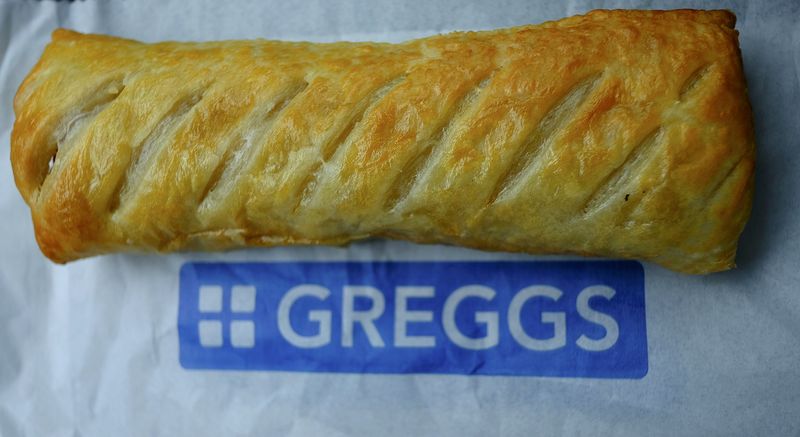Greggs Keeps Guidance Unchanged as Soaring Sales Offset Inflation
2022.08.02 10:10

By Geoffrey Smith
Investing.com — Greggs (LON:GRG) said on Tuesday it bounced back in style from the pandemic, allowing it to keep its profit forecast for the year unchanged despite relentless cost pressures.
The bakery chain said sales rose 27% from a year earlier to 695 million pounds ($849 million) in the first half, as its stores around the U.K. reopened in the wake of the pandemic. Comparable store sales rose 22%.
However, profit before tax was largely stagnant at 55.8 million pounds, reflecting the end of the government’s relief on business rates, an increase in VAT, and inevitably, higher cost inflation.
Greggs said it expected its own costs to rise some 9% over the year as a whole, largely due to rising prices for food, packaging, and energy. However, the board was still confident enough to leave its guidance for the year unchanged, not least because the rate of shop openings is set to accelerate in the second half.
“Clearly there are considerable uncertainties in the economy as a whole, but we continue to trade in line with our plan and are making good progress against our strategic objective to become a larger, multi-channel business,” chief executive Roisin Currie said in a statement.
“If Greggs can maintain its recent sales momentum, it will go some way to offsetting inflationary pressures,” said Charlie Huggins, head of equities at Wealth Club, in emailed comments. “But the group’s near-term prospects still look rather unappetising given the extremely unsavoury cost outlook.”
Huggins reckoned that the outlook “is probably more or less baked into the share price, but until inflation comes down, Greggs will have to run hard just to stand still”.
Greggs shares have had a wild ride in the last two and a half years as the pandemic severely disrupted a strategic transformation that has seen it broaden its offerings and expand into online sales and delivery. The shares are now roughly where they were when COVID-19 first arrived in the U.K., having lost 40% and then more than doubled through the end of 2021. Inflation concerns and the weak outlook for U.K. consumer incomes have left the stock down 38% so far this year.








